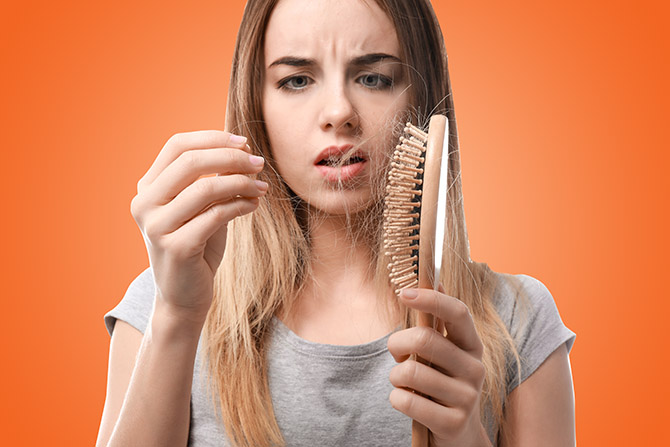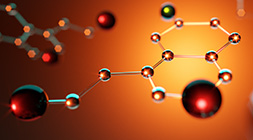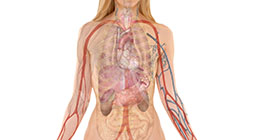
There are few things more distressing to a woman than watching her lovely locks fall out. More than two-thirds of women are affected by hair loss at some point in their life. Hair loss can range from thinning to bald patches. Yet, unlike men, women facing hair loss are offered few solutions to stop falling hair. There are three common, underlying causes of hair loss in women: low iron, hypothyroidism and nutritional deficiencies in the diet.
Low Iron and Hair Loss
Low iron is the main reason for hair loss in women and you do not have to be diagnosed with anemia to have your hair fall out. Your hair follicles contain ferritin which is your iron storage. When iron levels drop to low-normal, hair not only falls out, but it also becomes dry, breaks easily and loses pigment causing it to go grey prematurely. Severe hair loss can occur with low-normal ferritin.
Many women are diagnosed with alopecia when they actually have hair loss due to low iron. Have your ferritin and hemoglobin levels checked. A ferritin test result below 70 ug/L and hemoglobin below 140 ug/L will cause hair loss.
Studies show that we need 20 mg of iron daily from our diet, but most women are only getting 8 mg resulting in iron deficiency. Heavy menstrual bleeding should be addressed to ensure iron levels recover quickly.
Other common symptoms of low iron:
- No energy/fatigue
- Pale skin
- Breathlessness upon even minor exertion
- Dark under-eye circles
- Dizziness
- Thin, brittle or peeling nails
- Restless legs
- Cold hands and feet
Look for a micronized, microencapsulated iron pyrophosphate III supplement, which will increase iron levels quickly. Micronized, microencapsulated iron does not constipate or cause digestive upset like other iron supplements and it raises ferritin levels quickly.
Low Thyroid and Hair Loss
The second most common cause of hair loss is low thyroid, also called hypothyroidism. Have a thyroid stimulating hormone (TSH) blood test performed. Those with a TSH over 2.0 IU/mL will develop hair loss among other low thyroid symptoms. Your doctor will advise that thyroid is normal unless the TSH is over 5.5 IU/mL so ask for a copy of your test results.
If you cannot get thyroid hormone from your doctor and your TSH is above 2.0 IU/mL, take ashwagandha, gugguls, potassium iodide, tyrosine and selenomethionine to ensure that your TSH stays in the healthy range below 2.0 IU/mL.
Other common symptoms of low thyroid:
- Constipation
- Dry skin
- Weight gain or difficulty losing weight
- Sensitivity to cold
- Menstrual problems/heavy periods
- Fatigue or lethargy
Nutrient Deficiencies and Hair Loss
Lastly, a lack of protein or micronutrients (vitamins and minerals) in the diet can cause poor hair quality and hair loss. Eat protein at every meal along with a multivitamin with mineral supplement. If you are a vegetarian, vegan, or your diet is lacking, include a high quality, hormone-free, soy-free protein powder. Some good options are protein isolate, and pea, pumpkin, or hemp protein powders. Additionally, try taking 10 drops of choline-stabilized orthosilicic acid for thick, fast growing hair.
Quick Steps to Halting Hair Loss
- Have ferritin levels tested; if ferritin is below 70 ug/L, supplement with a micronized, microencapsulated iron pyrophosphate III supplement
- Have thyroid tested, TSH should be 2.0 IU/mL or below; if TSH is above 2.0 IU/mL, supplement with ashwagandha, gugguls, potassium iodide, tyrosine and selenomethionine
- Ensure you are getting enough protein in the diet by adding in a high-quality protein powder and eat lots of green vegetables
- Take a complete multivitamin and mineral supplement
- Supplement with choline-stabilized orthosilicic acid










